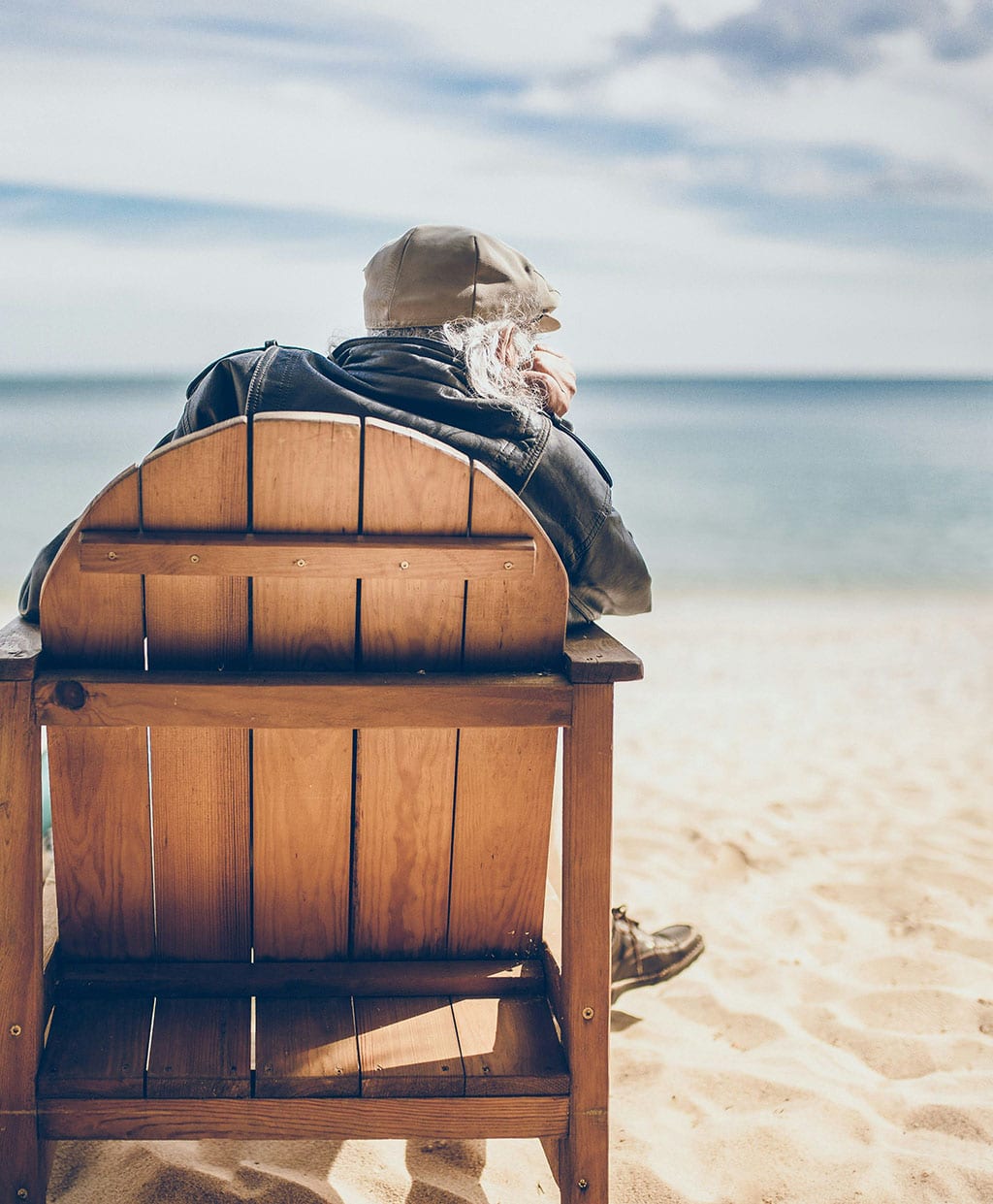If you have retired in Portugal, God willing (or to whomever you turn when the chips are down, or maybe thank when the chips are in plentiful supply), you’ll be growing old here and will eventually need caring for, to some degree or other. I hope to do this, and pray that my long-term care needs will be minimal, with me keeling over one day in my Portuguese garden, Godfather-style, after a joyous and barely perceivable decline in my dotage.
Here’s to us all enjoying our last and many years here in relative paradise. Yet the reality that many of us will only cursorily consider will likely involve both health and social care, in increased measure. So, what might that look like here in Portugal, should you be a foreigner who has only just got to grips with normal daily life here, let alone the complexities of being well maintained, fixed when necessary, and looked after by others, in the twilight times?
If I have managed to claim your attention, let me next give you some national context – some might say the ‘bad news’ – before offering an equally sobering ‘big picture’, and finally some food for thought, perhaps even inspiration.
If I am now suddenly losing your interest, you might want, in any case, to grasp the nettle of inevitability, and in facing the fact, feeling the fear, create some sort of plan, for which you can thank me later; hopefully much later.
In their academic analysis, Lopes, Mendonça, Henriques et al, looked at “Trajectories and determinants of ageing in Portugal”, finding that “increased life expectancy and lower fertility rates are causing the Portuguese population to age rapidly.” Their 10-year study also observed “increased physical disability and decreased health-related quality of life with advancing age in older adults, and a faster worsening of these outcomes at older ages.”
Though potentially depressing, the academics’ aim is to help “develop evidence-based public health policies”, a reassuring premise that can go hand in hand with Portugal’s relatively good standing generally in the realms of public and private healthcare, that many have high on their migratory checklist.
This country does, of course, not stand alone against the trend or wave of exponential ageing, or what some call the ‘Silver Tsunami’. The world view, literally, and according to an investopedia.com piece – ‘Silver Tsunami’: Challenges & Opportunities of an Aging Population, by Greg Daugherty – is quite shocking. It says: “The World Health Organization predicts that the number of people ages 60 and older worldwide will increase from 1 billion in 2020 to 1.4 billion in 2030 and 2.1 billion by 2050.”
Back in Portugal, against the European backdrop, Nuno Marques da Costa and Ana Louro, in their Centro de Estudos Geográficos report, ‘Ageing in Portugal: A Geographical Perspective’, tell us “demographic ageing is a reality not only in Europe but with special evidence in Portugal. In 2020, according to Eurostat data, the European Union’s Ageing Index was 137.2%, while in Portugal this figure was 165.1%”. Put another way, “the population over 65 represents about a fifth of the European population (20.7%) and slightly more in Portugal (22.3%).”
Furthermore, they add: “The average life expectancy at age 65 is now 20.3 years in Portugal and the Longevity Index is 29.6%, higher than the European Union values, which are 19.3 years and 28.9%, respectively. Thus, today we have a society with more elderly and longer-lived people, which poses new challenges in the field of health, economy, and society itself.
“While life expectancy beyond the age of 65 has been increasing, the number of years of healthy life for those who reach 65 is 9.5 years in the European Union and 8.4 years in Portugal, which highlights the need to safeguard health care and ensure material and social conditions for quality ageing,” they warn, which brings the matter back to each of us, and our investment in and preparedness for old age.
In his analysis, namely ‘The Ageing Challenge in Portugal and Europe’, Emeritus Researcher at the University of Lisbon, Manuel Villaverde Cabral asserts that “the challenge of socio-demographic ageing in Portugal is, if anything, greater than in most countries in Europe and indeed in the world.”
Not only is life expectancy improving more than OECD average, he notes, but also “the present Portuguese fertility rate is among the lowest in the whole world (2014 = 1.21). Population is currently decreasing in Portugal and may decline by 25% in the next 30-40 years.”
Around the world then, and contrary to what many believed would be a population explosion in our times, is more a collapse that we must be mindful of, especially in Portugal. There will be more, many more, older people, and fewer younger people to care for them directly or to pay taxes.
In a recent conversation with one of my regular morning show correspondents, Boots on The Ground Portugal’s Heather Binder, I asked her plainly about whether and how people are planning for old age here. “How do you see the long term, the prognosis for ageing in Portugal?” I asked her.
“Well, it’s going to be a struggle anywhere and everywhere. That’s just the reality,” she replied, an advisor to hopeful expats, and with experience of parental bereavement as well as placing her father in a Portuguese care home situation. “Every day that passes, I’m more and more thankful to be here,” said Heather, who realised external help was required when her father nearly “burned the house down”.
“Contrary to popular clickbait, there are assisted-living places here just like in the United States. We got lucky and found a really beautiful one-bedroom apartment, minutes away, a really nice place,” she continued, which I discovered cost less than half, maybe even less, of what she and her family might be facing ‘back home’.
My frank questioning continued with what Heather may herself do in years to come, who had for a short time also taken on a live-in carer for her mum and dad, a possible win-win situation for other migrants seeking work in Portugal, providing a service that can only be in greater demand in the years to come. “I have a spare room, and you never know, there could be a point in time where I move someone in there that gives me assistance,” she said.
Hers is the sort of creativity and far-sightedness that others might adopt in order to avoid a self-imposed repatriation, where the situation in our country of origin is more familiar but considerably more expensive, and one that we worked so hard to escape from in the first place.
Other approaches might include ‘co-housing’ among expat retirees, where facilities are shared or pooled when it comes to living accommodation, care and associated and ongoing costs for elders.
And who knows, the Good Morning Portugal! retirement home for retired GuMPers, that we have from time to time joked about, may actually become a reality?
Carl Munson is host of the Good Morning Portugal! show every weekday on YouTube and creator of www.learnaboutportugal.com, where you can learn something new about Portugal every day!





















